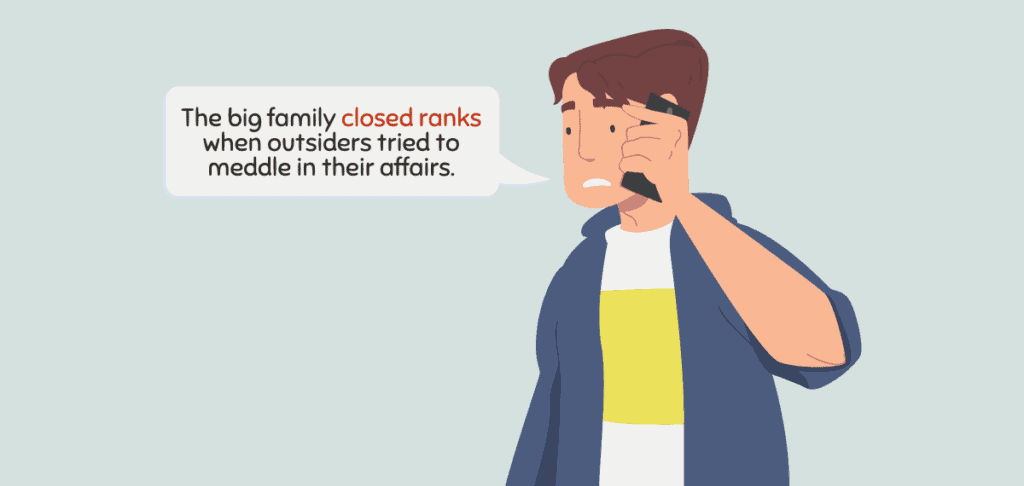Is it closed ranks or close ranks? Actually, what does that even mean? I’ll explain everything you need to know about this saying, which version is right, and teach you how to use it correctly. Sit tight and read on!
Close Ranks Meaning Explained
When you hear someone say something is close ranks, imagine a military formation tightening up its lines. Figuratively, it means to unite and maintain discipline and unity, especially in the face of opposition or criticism. It’s all about sticking together and presenting a united front.
Close Ranks vs. Closed Ranks
Now, you might be thinking, is it close ranks or closed ranks? Both are correct and can be used depending on the context. Close ranks is an instruction or a call to unite. Closed ranks describe a situation where unity has already been achieved.
Origin and Etymology of Close the Ranks
Not surprisingly, the saying close ranks has a military background. It derives from the practice of soldiers standing close together in a line or square to repel an attack. This idiom has stood strong in the English language since the early 18th century. We use it today to describe situations where things or people stick together.
Synonyms for Close Ranks
Looking for other ways to say the same thing? You can use plenty of alternatives to get the same point across.
- Band together
- Unite
- Stand together
- Show solidarity
- Stick together
Close Ranks Examples in a Sentence
Let’s see this phrase in full use, shall we? I always say that the context of a full sentence is the perfect way to understand a phrase.
- When the company was harshly criticized in the press, the employees decided to close ranks and defend their workplace.
- The soccer team closed ranks when their coach was unjustly accused of wrongdoing.
- Despite their differences, the community closed ranks to support the local Catholic school that burned down.
- In recent years, politicians from all parties closed ranks to condemn the act of terrorism.
- We need to close ranks if we hope to get through these difficult times and create a future for our children.
- The big family closed ranks when outsiders tried to meddle in their affairs.
- The council members closed ranks to prevent the mayor from pushing through a controversial law.
- The media closed ranks, refusing to publish the whistleblower’s claims, but independent outlets welcomed him with open arms.
- I love the indie author community and how the authors and readers close ranks to help share the love for independently published books.
Closing Thoughts
After reading my guide, you should have a better understanding of how to use this saying. The phrase is a shining example of how our language captures human behavior, even in the face of adversity. Keep the knowledge train chugging along and read some more of our awesome and helpful guides to idioms like this one.


